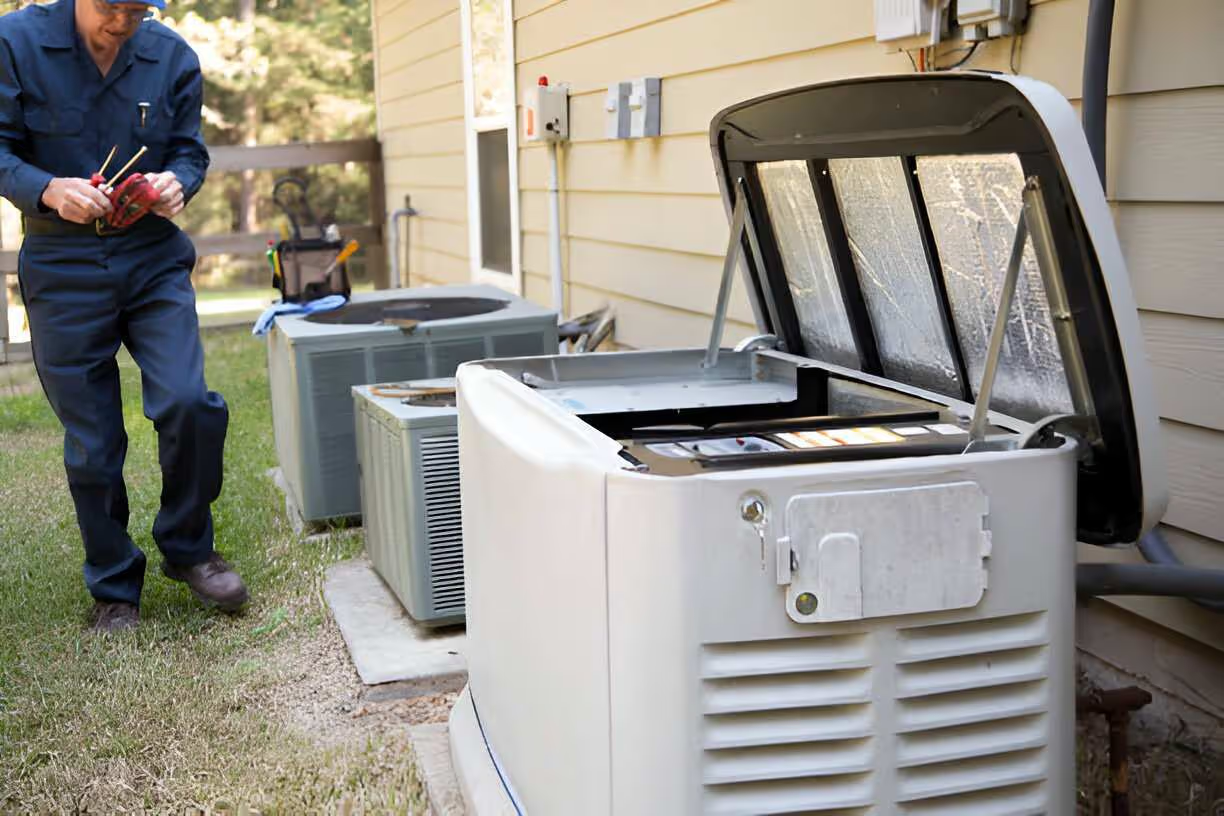AC Service in Temple Terrace, FL


Why local AC service matters in Temple Terrace, FL
Temple Terrace experiences long cooling seasons, high humidity, and occasional severe weather. Those conditions accelerate wear on condensers, promote mold growth in drain pans and ductwork, increase cooling demand, and can cause corrosion on exposed components. Local technicians understand how Florida heat and humidity affect refrigerant charge, airflow balance, and indoor air quality, and they tailor diagnostics and maintenance to these regional challenges.
Common AC issues in Temple Terrace homes
- Insufficient cooling or uneven temperatures — often caused by low refrigerant, blocked coils, or duct leaks.
- Frequent cycling or short-cycling — caused by thermostat issues, oversized equipment, or electrical problems.
- Water leaks or clogged condensate drains — humid conditions make drain blockage and overflow more common, leading to water damage and mold risk.
- Frozen evaporator coils — usually from airflow restrictions or low refrigerant.
- Strange noises or odors — loose parts, failing motors, or microbial growth in the system.
- Compressor or capacitor failure — heavy use in summer and power surges during storms can shorten component life.
- Aging systems and efficiency loss — older units struggle to meet modern efficiency needs and may need replacement.
Diagnostic process: what technicians do first
A thorough diagnosis ensures repairs address root causes rather than symptoms. Typical steps include:
- History and symptom review — technician documents when the problem began, operating patterns, and indoor comfort issues.
- Visual inspection — checking the outdoor condenser, indoor air handler, filters, drain line, duct access points, and electrical components.
- Airflow and temperature measurements — supply and return temps to determine delta T (temperature drop) and measure airflow performance.
- Electrical testing — verifying voltages, capacitor health, contactor operation, and safety controls.
- Refrigerant checks — measuring pressures and checking for leaks; EPA 608-certified techs handle refrigerants.
- System performance evaluation — observing startup behavior, cycle times, and control responses.
Diagnostics are documented in a clear report that explains findings in plain language, lists recommended repairs or options, and outlines expected outcomes and timelines.
Repairs and typical solutions
After diagnosis, recommended repairs may include:
- Refrigerant leak detection and repair followed by recharge to correct pressures and restore cooling.
- Component replacements such as capacitors, contactors, motors, fans, or condensate pumps to resolve electrical or mechanical failures.
- Coil cleaning and condensate maintenance to restore heat transfer and prevent water damage.
- Duct sealing and airflow adjustments to even out temperatures and improve efficiency.
- Thermostat calibration or replacement for control accuracy and better system staging.
Repair workflows typically include an initial estimate, parts ordering if needed, and scheduled return visits for complex fixes. Reputable providers explain options (repair vs replace) based on age, efficiency, and long-term cost considerations.
New installations and replacements
When replacement is the right choice, expect a methodical process:
- Load calculation (Manual J) to size equipment based on home layout, insulation, window orientation, and local climate loads.
- Equipment selection balancing SEER rating, warranty terms, and system type (split system, heat pump, packaged unit).
- Ductwork evaluation and any necessary repairs or upgrades for proper airflow.
- Permit and inspection coordination to meet local building codes.
- Professional installation practices including proper refrigerant charging, airflow tuning, and electrical connections.
Installations should include disposal of the old unit and a start-up check demonstrating performance and controls operation.
Maintenance plans and seasonal tune-ups
Regular maintenance extends equipment life, reduces energy use, and helps avoid emergency breakdowns. Typical tune-up checklist items:
- Replace or clean air filters
- Clean condenser and evaporator coils
- Check refrigerant levels and inspect for leaks
- Test capacitors, relays, and motors
- Clear and test condensate drain
- Verify thermostat operation and zoning controls
- Measure system performance and provide a written report
Many maintenance plans also include priority scheduling and documented service history, which is especially valuable in Temple Terrace where peak-season demand can strain availability.
Emergency call-outs and response expectations
Temple Terrace homeowners often need fast responses during heat waves or after storms. Most local providers offer emergency service options with:
- Priority dispatch for urgent no-cool situations
- Same-day or next-day appointments for non-life-threatening issues depending on season and demand
- On-site troubleshooting and temporary measures to restore cooling while parts are sourced
Expect transparent communication about estimated arrival windows and diagnostic fees. Emergency visits focus on restoring safe, functional cooling quickly and then providing follow-up repair plans.
Technician credentials and service guarantees
Look for technicians with:
- EPA 608 certification for refrigerant handling
- NATE-certified technicians or equivalent training
- State or local HVAC licensing and insurance
- Background checks and ongoing manufacturer training
- Reliable services typically back their work with parts and labor warranties, clear terms for workmanship guarantees, and written estimates. Warranty coverage and guarantee duration vary by part and service type, so providers should explain these plainly in the service documentation.
Transparent pricing and what to expect
Transparent pricing practices include:
- Clear, written estimates before non-emergency repairs
- Itemized lists of parts and labor
- Explanations for necessary vs optional repairs
- Disclosure of diagnostic or trip charges up front
- Transparent providers also explain long-term cost implications (efficiency gains from a new unit, expected lifespan, common failure points) so decisions are informed and financially sensible.
Benefits of timely AC service in Temple Terrace, FL
- Better comfort during prolonged hot, humid periods
- Lower energy bills from optimized performance
- Reduced risk of humidity-related mold and indoor air quality problems
- Extended equipment life and fewer mid-summer emergencies
- Safer operation with properly maintained electrical components during storm season
Regular, local AC service tailored to Temple Terrace conditions helps protect your home, your family’s comfort, and your investment in HVAC equipment. Service professionals apply regional experience to diagnose issues accurately, recommend sensible repairs or replacements, and document work clearly so you understand the condition and needs of your system.
Service Areas


